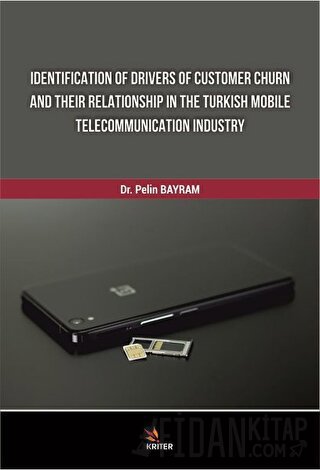Identification Of Drivers Of Customer Churn And Their Relationship In The Turkish Mobile Telecommunication Industry

The mobile telecommunication services industry is one of the fastest growing markets today, and it is reaching the maturity stage of its lifecycle in Turkey.
The same pattern is proven valid on a global scale due to the rapid increase of the industry's share in daily communications worldwide. When the pool of available customers is limited, as a result of a saturated market, the industry changes its strategic focus away from acquiring new customers and moves towards retaining existing customers. In order to survive in a mature market, such a shift emanates from the need to manage high customer churn in a highly competitive industry and places effective churn management in the forefront of the mobile telecommunications business environment.
This research aims to analyze and to provide a better understanding of the drivers of customer churn, semi-churn, and customer retention in the Turkish mobile telecommunication industry. The effects of rational drivers such as customer satisfaction and emotional drivers such as brand loyalty, and switching barriers are incorporated into the analytical focus of the study. The research assesses the structural relationship between these factors and their effect on customer churn and retention as well as semi-churn (multi-SIM users).
Based on the research model, 25 hypotheses were developed to test the relationships between the determinants and customer churn, semi-churn, and customer retention. Questionnaire data from 540 subscribers was collected from a sample of three mobile operators in Turkey (Turkcell, Vodafone, and Avea). Structural Equation Modelling (SEM), using a Partial Least Squares (PLS) approach, was used to test the research model and the hypotheses.
The findings of this research will aid practitioners in predicting drivers of churn in their businesses in order to minimize defection and maximize the customer life time value in the mobile telecommunication industry. Moreover, this study will provide a novel contribution in the field of marketing literature by introducing the term semi-churn (multi-SIM users).
The mobile telecommunication services industry is one of the fastest growing markets today, and it is reaching the maturity stage of its lifecycle in Turkey.
The same pattern is proven valid on a global scale due to the rapid increase of the industry's share in daily communications worldwide. When the pool of available customers is limited, as a result of a saturated market, the industry changes its strategic focus away from acquiring new customers and moves towards retaining existing customers. In order to survive in a mature market, such a shift emanates from the need to manage high customer churn in a highly competitive industry and places effective churn management in the forefront of the mobile telecommunications business environment.
This research aims to analyze and to provide a better understanding of the drivers of customer churn, semi-churn, and customer retention in the Turkish mobile telecommunication industry. The effects of rational drivers such as customer satisfaction and emotional drivers such as brand loyalty, and switching barriers are incorporated into the analytical focus of the study. The research assesses the structural relationship between these factors and their effect on customer churn and retention as well as semi-churn (multi-SIM users).
Based on the research model, 25 hypotheses were developed to test the relationships between the determinants and customer churn, semi-churn, and customer retention. Questionnaire data from 540 subscribers was collected from a sample of three mobile operators in Turkey (Turkcell, Vodafone, and Avea). Structural Equation Modelling (SEM), using a Partial Least Squares (PLS) approach, was used to test the research model and the hypotheses.
The findings of this research will aid practitioners in predicting drivers of churn in their businesses in order to minimize defection and maximize the customer life time value in the mobile telecommunication industry. Moreover, this study will provide a novel contribution in the field of marketing literature by introducing the term semi-churn (multi-SIM users).










